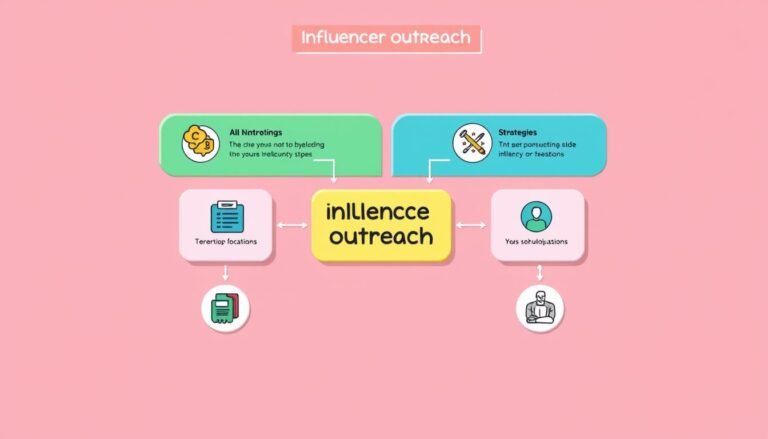Navigating GDPR: Data Privacy Compliance in Digital Marketing
How can digital marketers balance the demand for personalized experiences with stringent GDPR requirements?
In the world of digital marketing, data privacy is key. The GDPR changed how companies use consumer data in May 2018. It made getting consent clear and focused on keeping data safe and transparent.
Now, trust in brands is dropping because of privacy issues. But, EU digital marketing firms are getting better at following GDPR, with a 78% compliance rate. This has led to a 15% increase in conversion rates because users trust these companies more. Investment firms also look closely at how companies handle data, making transparency and following the rules more important. But, the big question is: Are digital marketers doing a good job of balancing privacy and personalization?
Key Takeaways
- Privacy scandals have eroded trust in brands, highlighting the importance of data privacy.
- GDPR compliance rates among EU digital marketing companies are at 78%.
- Investors prioritize transparency and compliance in data practices, impacting brand attractiveness.
- Explicit consent and balanced personalization boost user trust and conversion rates.
- Transparency and compliance are crucial for data privacy in digital marketing strategies.
- Cybersecurity measures such as encryption and access controls are integral to GDPR compliance.
- Personalization effectiveness, balanced with privacy considerations, enhances customer retention by 30%.
Introduction to GDPR and its Importance in Digital Marketing
The General Data Protection Regulation (GDPR) was introduced by the European Union in 2018. It changed how businesses handle personal data. It’s key for making sure digital marketing respects consumer data protection. GDPR makes sure companies get user consent and follow strict rules for handling data.
GDPR focuses on transparency. Companies must tell people why they’re using their data. This means data is only used for clear reasons, building trust with consumers.
GDPR also talks about collecting only what’s needed. This reduces the risk of data leaks. Keeping personal data accurate and up-to-date is also crucial in digital marketing.
GDPR says to not keep personal data longer than needed. Keeping consumer data safe and secure is vital, especially in digital marketing. Data breaches can lead to big problems.
GDPR changed how companies get consent in digital marketing. Now, companies need clear consent before using someone’s data. This makes consumers feel more in control of their information.
People have more rights over their data under GDPR. They can ask for their data and move it to another service. These rights make consumers trust businesses more.
Companies must take steps to keep data safe and notify people of breaches under GDPR. They need to check their data and work with third-party processors. Training teams on GDPR and using security tools like encryption is key.
Not following GDPR can lead to big fines. For example, British Airways might face a fine of up to €200 million. This shows how important it is to follow GDPR for digital marketing.
Companies are changing how they collect data because of GDPR and laws like the California Consumer Privacy Act (CCPA). These laws require companies to ask for consent before using data. They also let people see and delete their personal info.
GDPR affects businesses worldwide, not just in Europe. With updates like Apple’s iOS 14, which lets users choose to share data with apps, data privacy in digital marketing keeps changing.
Key GDPR Requirements for Digital Marketers
Digital marketing is always changing, so it’s key to know the GDPR rules to stay compliant and keep customer trust. Since May 2018, GDPR has changed how businesses handle personal data. It makes sure data protection is strong.
Obtaining and Managing Consent
GDPR says companies must get clear consent to process personal data. This consent must be given freely, be clear, and be a clear yes. Things like pre-checked boxes and hard-to-understand language are not allowed. Instead, marketers should talk clearly to get consent.
Ensuring Transparency and Control
Being open and giving people control over their data is key. Under GDPR, people have more rights, like seeing their data, fixing mistakes, deleting their data, and limiting how it’s used. Companies must tell users how their data is handled and make it easy for them to use their rights.
Data Minimization and Accuracy
GDPR focuses on using only the data needed and keeping it correct and current. This lowers the chance of data leaks and builds trust by showing responsible data use.
Implementing Technical and Organizational Measures
To follow GDPR, digital marketers need to use the right tech and plans. This includes encrypting data, doing regular security checks, and having good plans for data breaches. If there’s a data breach, companies must tell the authorities within 72 hours. Not following these rules can lead to big fines, up to €20 million or 4% of global sales, whichever is more.
| Key Requirement | Implementation |
|---|---|
| Obtaining Consent | Explicit opt-in, clear language, no pre-ticked boxes |
| Transparency | Inform users clearly about data usage |
| Data Minimization | Collect only necessary data, ensure it is accurate |
| Technical Measures | Encryption, security audits, breach notifications |
Impact of GDPR on Digital Marketing Practices
GDPR has changed the game in digital marketing. It sets strict rules to protect EU citizens’ personal data. Now, digital marketers must get clear consent before collecting user data. This affects email marketing changes and online advertising big time.
Following GDPR means consent is key. Marketers must make sure consent is clear, informed, and given freely. This change is clear in email marketing, where fewer unwanted emails are sent. Now, marketers need to ask for clear consent, make opting out easy, and keep detailed records.
On social media marketing, GDPR has brought new rules for tracking and targeting. Marketers must now get clear permission for using data. They need to be open about tracking users and delivering targeted ads on social media.
Data security has also become a big deal. Companies must now have strong security and report data breaches quickly. This focus on security helps build trust with customers. Being open and ethical with data can really set a brand apart in the digital world.
Third-party data providers also face new challenges. They need to follow GDPR to avoid losing trust and facing big fines. Companies in online advertising must check their data sources meet GDPR rules to stay compliant and keep customers’ trust.
In short, GDPR has changed how digital marketing works. It makes marketers focus on being open, building trust, and using data legally. By following these changes, businesses can stay on the right side of the law and build stronger relationships with their audience.
Navigating GDPR: Data Privacy Compliance in Digital Marketing
Digital marketers must follow strict rules for data privacy under GDPR. They need to make a clear privacy policy, find legal ways to process data, and get user consent. They should also protect data by design and check their data handling regularly.
Creating a GDPR-Compliant Privacy Policy
A good privacy policy is key for businesses to tell users what they do with their data. It should explain what data is collected, why, how it’s used, and users’ rights. Being open and clear helps users understand their data handling. Companies should update their policies often to match changes in how they use data.
Implementing Lawful Basis for Processing Data
Finding a legal reason to process data is vital for GDPR. Businesses can use consent, need, law, vital interests, or public interest as reasons. It’s crucial to explain why they choose each reason and document it.
Offering Granular Consent Options
Granular consent lets users decide what data they share. It breaks consent into specific areas, letting users pick what they’re okay with. This makes businesses follow GDPR and builds trust with users. It also makes users feel in control of their data.
Data Protection by Design and by Default
Protecting data by design and default means privacy is built into a business from the start. This means thinking about privacy during product making and service delivery. Using strong security, encryption, and data checks are ways to protect data automatically.
Conducting Data Protection Impact Assessments
Under GDPR, doing data protection impact assessments (DPIAs) is a must for high-risk data handling. These assessments spot and lower data privacy risks. A good DPIA looks at how data is processed, checks if it’s needed, and finds ways to protect it. Doing DPIAs often helps follow GDPR and builds a privacy-focused culture in a company.
Following the law, giving users clear consent choices, and doing DPIAs are key for digital marketers. They help stay compliant and build trust with their audience.
Strategies for GDPR Compliance in Digital Marketing
To follow GDPR in digital marketing, you need to use strong strategies. These include being clear, getting consent, using less data, and keeping data safe. Marketers must focus on these to meet data laws and build trust with customers.
First, being clear about how you use data is key. A clear privacy policy helps meet GDPR rules. Getting clear consent from people is also crucial. Now, 65% of marketers are changing their ways to focus more on privacy.
Then, using less data can make your marketing better. Collect only what you need to improve your campaigns. This way, you follow GDPR and get better results. New tech like differential privacy helps marketers use data safely.
Last, keeping data safe is a must. Use encryption and check your systems often to protect data. With GDPR, companies are spending a lot on staying compliant. Following these steps helps build trust and ensures your marketing is good for the long run.
Source Links
- Navigating Data Privacy and Security in Digital Marketing | Bluetext
- Data Privacy in Digital Marketing: Navigating the Landscape of User Trust – Palpx – Full Stack Digital Solutions Agency
- GDPR and Digital Marketing: Navigating Compliance and Strategy | ProfileTree
- GDPR and Digital Marketing: Ensuring Compliance and Building Trust
- GDPR for Marketing: The Definitive Guide for 2023
- Council Post: The Impact Of Privacy Regulations On Digital Marketing
- What US Digital Marketers Need to Know About GDPR in 2024
- Navigating Data Privacy Regulations in Digital Marketing: A Marketer’s Guide to Compliance and Protection – BrandVerge
- Navigating the Impact of Privacy Regulations on Digital Marketing: GDPR, CCPA, and Beyond
- The Impact of GDPR on Digital Marketing
- The Impact of GDPR on Digital Marketing – Tsaaro Consulting
- Protecting User Privacy: A Marketer’s Guide to Navigating Data Privacy and Compliance
- Navigating Compliance and Regulations in Internet Marketing
- Navigating Data Privacy Regulations in Digital Marketing – Legal Soft
- Data Privacy and Compliance in Digital Marketing: Navigating Regulatory Landscapes
- Navigating GDPR in Digital Marketing: Ensuring Compliance and Enhancing Trust
- Cookie Consent & GDPR Compliance: What Digital Marketers Need to Know | Cypress North








